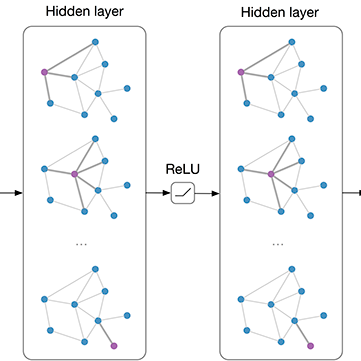Deep extreme classification (XC) aims to train an encoder architecture and an accompanying classifier architecture to tag a data point with the most relevant subset of labels from a very large universe of labels. XC applications in ranking, recommendation and tagging routinely encounter tail labels for which the amount of training data is exceedingly small. Graph convolutional networks (GCN) present a convenient but computationally expensive way to leverage task metadata and enhance model accuracies in these settings. This paper formally establishes that in several use cases, the steep computational cost of GCNs is entirely avoidable by replacing GCNs with non-GCN architectures. The paper notices that in these settings, it is much more effective to use graph data to regularize encoder training than to implement a GCN. Based on these insights, an alternative paradigm RAMEN is presented to utilize graph metadata in XC settings that offers significant performance boosts with zero increase in inference computational costs. RAMEN scales to datasets with up to 1M labels and offers prediction accuracy up to 15% higher on benchmark datasets than state of the art methods, including those that use graph metadata to train GCNs. RAMEN also offers 10% higher accuracy over the best baseline on a proprietary recommendation dataset sourced from click logs of a popular search engine. Code for RAMEN will be released publicly.
翻译:暂无翻译




